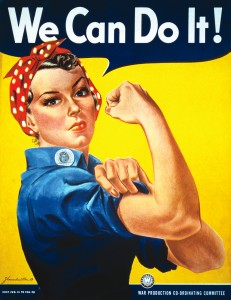
Image from Creative Commons
By Morgn Paul
Paul, Morgan?
I’m used to hearing teachers mess up names, giggling and drawing out letters to avoid embarrassing themselves (or the student), but I never really had to deal with this. “Morgan Paul” is too simple to screw up saying, aside from the occasional “Megan”. What I’m more used to is “Paul Morgan”. It never really fazed me until my professor was handing back papers one day and I noticed the way she paused. My name was clearly typed at the top of the page, “Morgan Paul” In that order, no comma. But when she got to my paper she stopped, whispered my name to herself, and then asked “Paul Morgan?” I politely corrected her, took my paper, and checked to see if I had written my name backwards. I had not. I soon realized that even though it was more likely that my name was written correctly she was worried that if I were a man it would have been insulting to have been confused with a woman. She may not have blatantly recognized this fear, but I do believe that is why she said my name that way. I believe that’s the reason why most teachers throughout my education career have not questioned my gender, but immediately assumed that I was a boy. This experience reminded me of a quote by Ian McEwan that has lodged itself into the most concrete part of my brain and peaks its head out daily to remind me why I am fighting against the patriarchy. “Girls can wear jeans and cut their hair short and wear shirts and boots because it’s okay to be a boy; for girls it’s like promotion. But for a boy to look like a girl is degrading, according to you, because secretly you believe that being a girl is degrading.” These words are constantly haunting every piece of me. When I want to celebrate the growth of women’s rights I realize it’s not a growth of women’s rights but a transition into a new category of masculinity. This is the same reason that women in pant suits working in corporate offices are seen as manly instead of powerful women. This is the same reason that girls playing in the dirt are tomboys instead of girls who don’t mind getting dirty. And furthermore, this idea of quiet weak women makes me feel the need to make the distinction between women and powerful women or girls and girls who don’t mind getting dirty as if they’re not still women or girls! I hope that I’m not the only one who is upset by these realizations, and I hope that I’m not the only one who will support the idea that there are not powerful women but that all women are powerful!